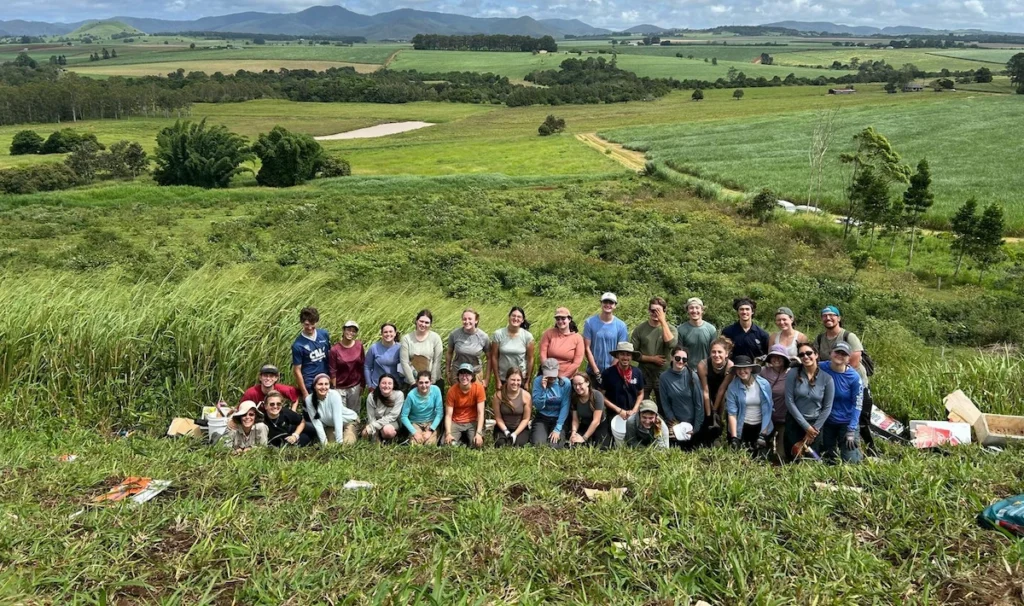Alumni Profile: David Bennett
Why did you choose SFS as a study abroad program?
I chose SFS because I was committed to having my study abroad experience be hands-on, one in which I would learn tangible research skills and methods. I also wanted to participate in a research effort where the outcomes would be applied to support the needs of a local community. SFS was a great fit for meeting these goals.
What is your most profound or lasting memory from your SFS program?
One of my most profound memories is helping Wallace J. Nichols record data from a green sea turtle that had been caught in a fishing net in Magdalena Bay earlier that day. I’ll also never forget the bioluminescents that we would see illuminate as the waves crashed in the distance during late night water sampling sessions in the field.
What did you gain from your SFS experience?
Looking back on my experiences with SFS, there are two key take-a-ways that I still rely upon in my work today:
First, I learned to work closely in teams with people that had different perspectives than my own. Living and working in close quarters, on boats and in the heat required a significant amount of collaboration and patience in order for us to be effective as a student research team. At times, our viewpoints differed on how to execute our work but the close-knit environment that SFS fosters truly teaches students how to work with diverse viewpoints to design shared solutions that a large team can support.
Second, I learned the value in bringing all stakeholders to the table and creating a forum for the knowledge of all parties to be heard. The way in which SFS brings the local community and the many constituent groups inside that community into the conversation about designing environmental and social solutions is remarkable. Through SFS, I learned first-hand the value of incorporating local knowledge into the process of defining the problem and exploring solutions. I’ll never forget the many times that I saw diverse groups ranging from local fishermen to policy regulators to NGO representatives visiting our site and helping to shape a pathway towards a more prosperous economy and environment for Magdalena Bay.
What advice would you give to a prospective SFS student?
If I had to pick one piece of advice, it would be to develop a full understanding of the ecosystem that you are working within during your research. Although you need to be focused on the specific piece of the puzzle that you are trying to solve, it’s also critical that you understand the bigger picture – the macro level issues that your work addresses. So, don’t just focus on studying the water quality of the hydrologic systems. Instead, be sure to also understand why those water bodies are important to the economy of the local community and what role that water body plays in the historical ecology of the region.
What do you do for work?
I work in Google’s Real Estate & Workplace Services organization as the Green Team Operations & Innovations Lead. In my role, I’m responsible for managing a global program to support green building practices across roughly 30 Google offices around the world. I also review emerging technologies for the built environment (which are human-made surroundings) as a way of identifying innovative solutions that we might want to adopt in Google offices.
What that means on a daily basis is that I have to ensure that my team has the tools and resources they need to support facilities managers throughout the world. So, I do a good bit of video conferencing with teams throughout the US, in Europe, and beyond. I also conduct meetings with entrepreneurs and academics to learn more about emerging technologies that we may want to adopt.
Did your SFS experience contribute to where you ended up?
Definitely. It was during my summer semester in Baja that I was able to realize the initial path that I wanted my career to head towards. I gained this clarity through the on-the-ground experience that SFS provided. I learned that I wanted my environmental career to be science-based, data-driven, and applied. It became clear to me that I didn’t want to research conservation issues just for the sake of doing research – I wanted my work to benefit communities. I also realized how important is it to me that the environmental strategies I propose be evidence-based. Through my time at SFS, I clearly saw the value in providing the right data to the right decision makers at the right time in order to achieve the best possible outcomes. I’ve kept these lessons with me ever since and still embrace them today, nearly 17 years later!
What advice do you have for other SFS alumni looking to get into your field?
Pursue work that you truly love doing. There’s so much good work that needs be done in the world and there are endless industries that you can be a part of in order to effect the change that you want to see in the world.
Someone once asked me, “what is it that you can’t NOT do?” I think that asking yourself that question is one good way of figuring out your passions because that question forces you to examine the things in life that you feel compelled to accomplish in life. Once you know what those pursuits are and can begin working towards them, I think you’ll find a great sense of accomplishment personally and professionally.
Related Posts

Cinder Cone Chronicles: Lessons from Drought, Data, and Determination

Reuniting with Tanzania: Eric Walsh’s “Reunion Flag” Keeps the Spirit Alive
